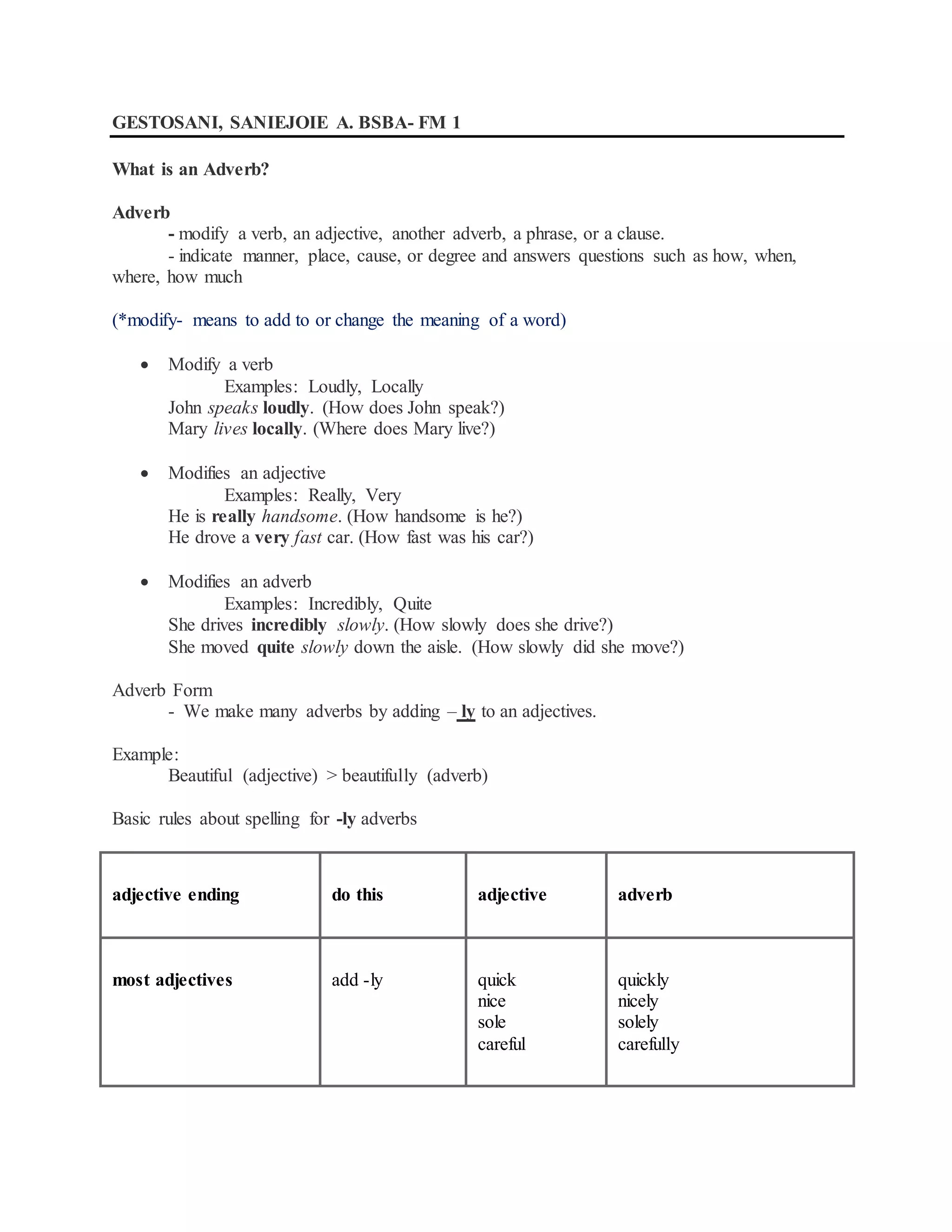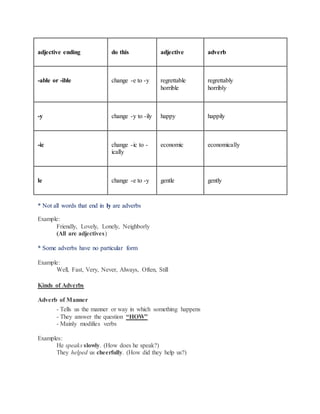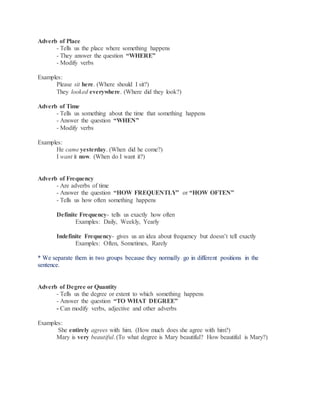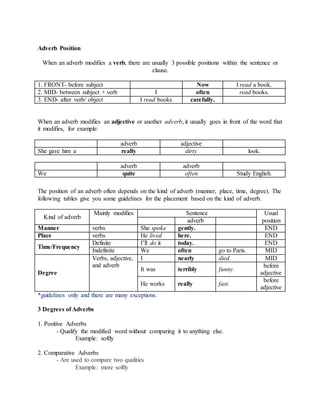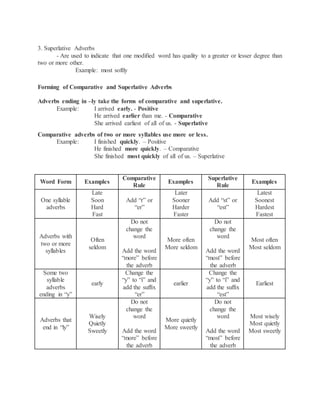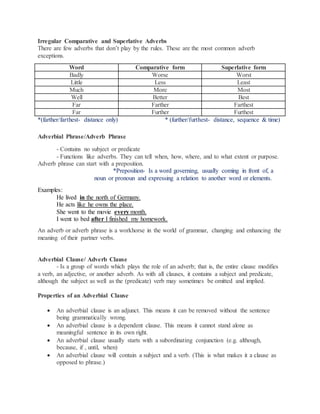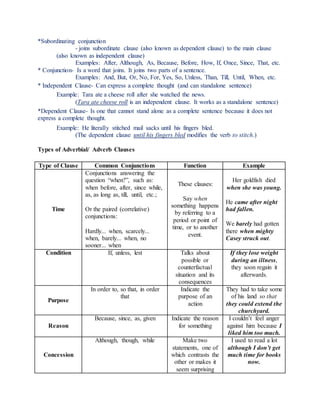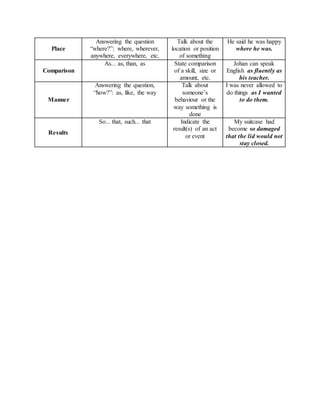This document defines and provides examples of adverbs. It begins by stating that adverbs modify verbs, adjectives, other adverbs, phrases, or clauses by indicating manner, place, cause, or degree. The document then provides examples of different types of adverbs including adverbs that modify verbs, adjectives, and other adverbs. It discusses how most adverbs are formed by adding "-ly" and lists exceptions. It also explains the different kinds of adverbs like manner, place, time, frequency, and degree. The document concludes by covering adverb position, the three degrees of adverbs, forming comparative and superlative adverbs, irregular adverbs, adverbial phrases, and adverb clauses
